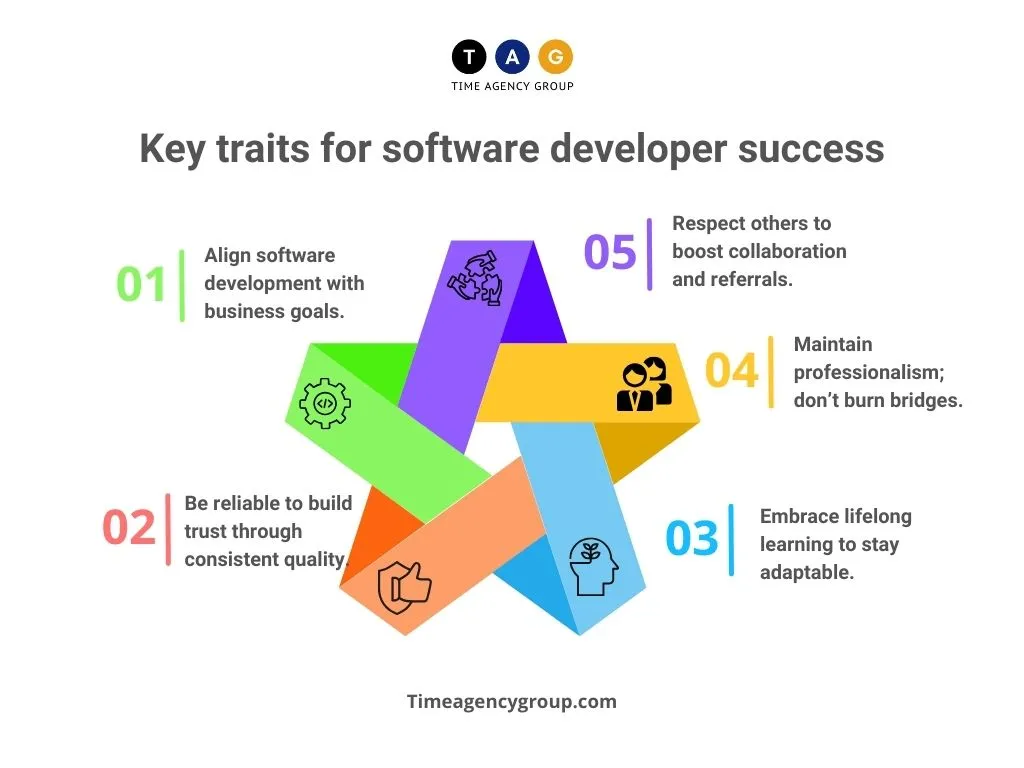Software development a thrilling, rewarding journey. With tech ever-changing, developers become architects. They build tools, apps, systems that shape our lives. Yet success needs more than tech know-how. To rise and shine, developers must mix skills, qualities, mindset uniquely. This piece uncovers five key traits for software development success. Newbies or pros aiming for advancement the traits offer a strong base to hit your targets. The project requires a blend of strategic thinking, reliability, and people-oriented skills. The following five characteristics are essential for any software developer to be successful, and these are:
Example:
A developer was called upon to develop software to automate a process of a company. The developer implemented the specifications to the letter; however, the resulting product did not serve the needs of the team because they continued to use their spreadsheets. The mismatch occurred due to not knowing their end-to-end workflow. Learning to ask the right questions, such as “What specific outcome are we trying to achieve?” can help avoid such pitfalls.
Example:
Instead of trying to be the sole expert in something, like a certain codebase, share that with your fellow team members. In such a way, you become a crucial part of your team, not a bottleneck, hence offering others more value and building better relationships.
Example:
Without any experience in mobile development, for one of the developers, the request to create a mobile application was all an opportunity. He dived head-first into the unfamiliar programming languages and frameworks, not only delivering the requirement but gaining experience that would expand his career options.
Example:
A developer quit a job and refused to share important access codes. Perhaps, to them, it felt like a nice way to “get back” at the company. In reality, it hurt relationships with colleagues who had to clean up the mess. Keeping a respectful, professional attitude can enable a strong network for future opportunities.
Example:
One developer kept in touch with a recruiter over the years, discussing the labor market and career trends. When it was time for him to switch to another position, he was helped by no one else than this very recruiter because of the good relationship they had managed to build.
Get in touch with a recruiter and connect with one of our experienced IT recruiters to discuss your career goals.
1. Know the Business Objectives
Accomplished developers understand that their work impacts the large business objectives. When developing software, it is very simple not to think of what a problem is trying to solve but focus on just the technicality of the problem. Most of the time, the optimum solutions come from talking with stakeholders to iron out the needs and objectives. By aligning your work with what the real challenges of the business are, you ensure that your software really is useful and has more impact, rather than a solution to an ill-conceived problem.Example:
A developer was called upon to develop software to automate a process of a company. The developer implemented the specifications to the letter; however, the resulting product did not serve the needs of the team because they continued to use their spreadsheets. The mismatch occurred due to not knowing their end-to-end workflow. Learning to ask the right questions, such as “What specific outcome are we trying to achieve?” can help avoid such pitfalls.
2. Be Reliable
Reliability will create trust. It is not about the quantity of hours, but rather consistency in quality. By informing team members of their progress and communicating if more time is required, you will be a reliable part of the team. You should also avoid not becoming “irreplaceable” by hoarding knowledge. The reason you want to avoid doing this is because it limits your ability to easily move and grow on a project.Example:
Instead of trying to be the sole expert in something, like a certain codebase, share that with your fellow team members. In such a way, you become a crucial part of your team, not a bottleneck, hence offering others more value and building better relationships.
3. Commit to Lifelong Learning
Thing about technology, the landscape keeps on changing. In place of thinking, “That’s outside the job description,” you actually look at it as, “Oh, here’s an opportunity to extend my skillset.” You can learn new languages, new frameworks on the job, and be relevant, adaptive, and valuable no matter how things shift in technology.Example:
Without any experience in mobile development, for one of the developers, the request to create a mobile application was all an opportunity. He dived head-first into the unfamiliar programming languages and frameworks, not only delivering the requirement but gaining experience that would expand his career options.
4. Do Not Burn Your Bridges
The technology community may be small, and one is likely to find themselves in contact with previous colleagues. Professionalism at all levels can pay off even in the leaving of a company. Actions like not revealing key information about projects when leaving a company may seem harmless but can burn bridges and reduce opportunities later on.Example:
A developer quit a job and refused to share important access codes. Perhaps, to them, it felt like a nice way to “get back” at the company. In reality, it hurt relationships with colleagues who had to clean up the mess. Keeping a respectful, professional attitude can enable a strong network for future opportunities.
5. Don’t Be a Jerk
It is not all about technical capability; how you interface with others matters equally. Groups can work far more effectively when its members are respectful and helpful. Being easy to work with can make you a go-to person in difficult situations and increase your positive referrals. The developers with strong interpersonal skills will always face an easy time finding jobs and building lifelong career networks.Example:
One developer kept in touch with a recruiter over the years, discussing the labor market and career trends. When it was time for him to switch to another position, he was helped by no one else than this very recruiter because of the good relationship they had managed to build.
Conclusion
In the realm of software development, there are five standout traits that can pave the way for success. The first one is problem-solving skills. These will allow you to confront obstacles head-on and devise efficient answers. Next up is continuous learning. As we live in a fast-paced technological age, keeping up with new trends will ensure your skills stay valuable. The third trait is all about teamwork and communication, which foster strong work relationships, essential for collaborative projects. Fourth, one should not underestimate the need for attention to detail. Refined focus reduces mistakes, leading to refined code. Lastly, adaptability imparts resilience in the face of change, a common occurrence in the tech industry. Developing these traits can lay the groundwork for a rewarding career in software development.FAQs
So, what’s a developer trait?
Usually, a Developer is methodical, structured, and grounded. They have the knack for being organized and will pay attention to detail, especially when given their own space to think and work.And what about traits in software?
In software, a trait represents a specific functionality that a type possesses and can share with other types. Traits can be used to outline shared behavior in a shared, abstract way. Trait bounds are used to specify that a generic type can be any type which displays specific behavior.Get in touch with a recruiter and connect with one of our experienced IT recruiters to discuss your career goals.
Infographics







